It might not be the focus of your kitchen, but butcher block countertops are a marvel to look at. They're versatile too! Butcher block countertops can take on many looks. One way to change its appearance is by applying a finish to it. If you're looking for the best finishes for it, let's go over some ideas!
In general, any wood finish should work well on them. However, you might have to get picky in some instances. For example, if you're going to use the countertop for cutting, you want a food-safe finish. Otherwise, you can use a film-forming finish.
Choosing a finish for wood is typically an easy task to accomplish. Most of the time, you only have to care about the protection it can offer. It's a different case when applying a finish to a kitchen surface. If you want to clear up some concerns, keep reading.
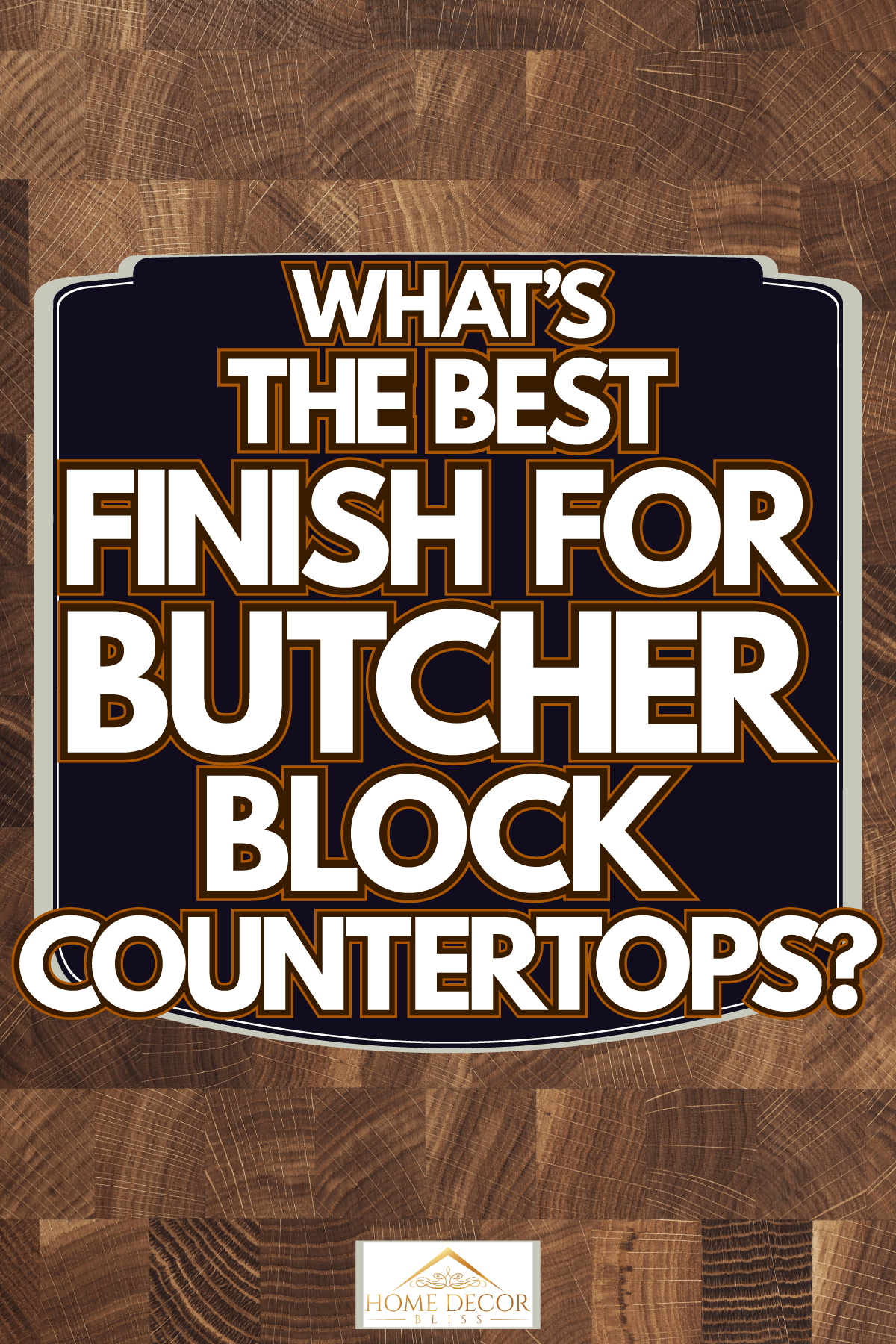
Choosing the Right Finish
Before you choose a finish, we have to clarify your priorities. Finishes have two different functions. The first is to protect the surface.
In other words, it's going to keep the butcher block countertop looking fresh as long as it can. The second would be to enhance the countertop's visual appeal.
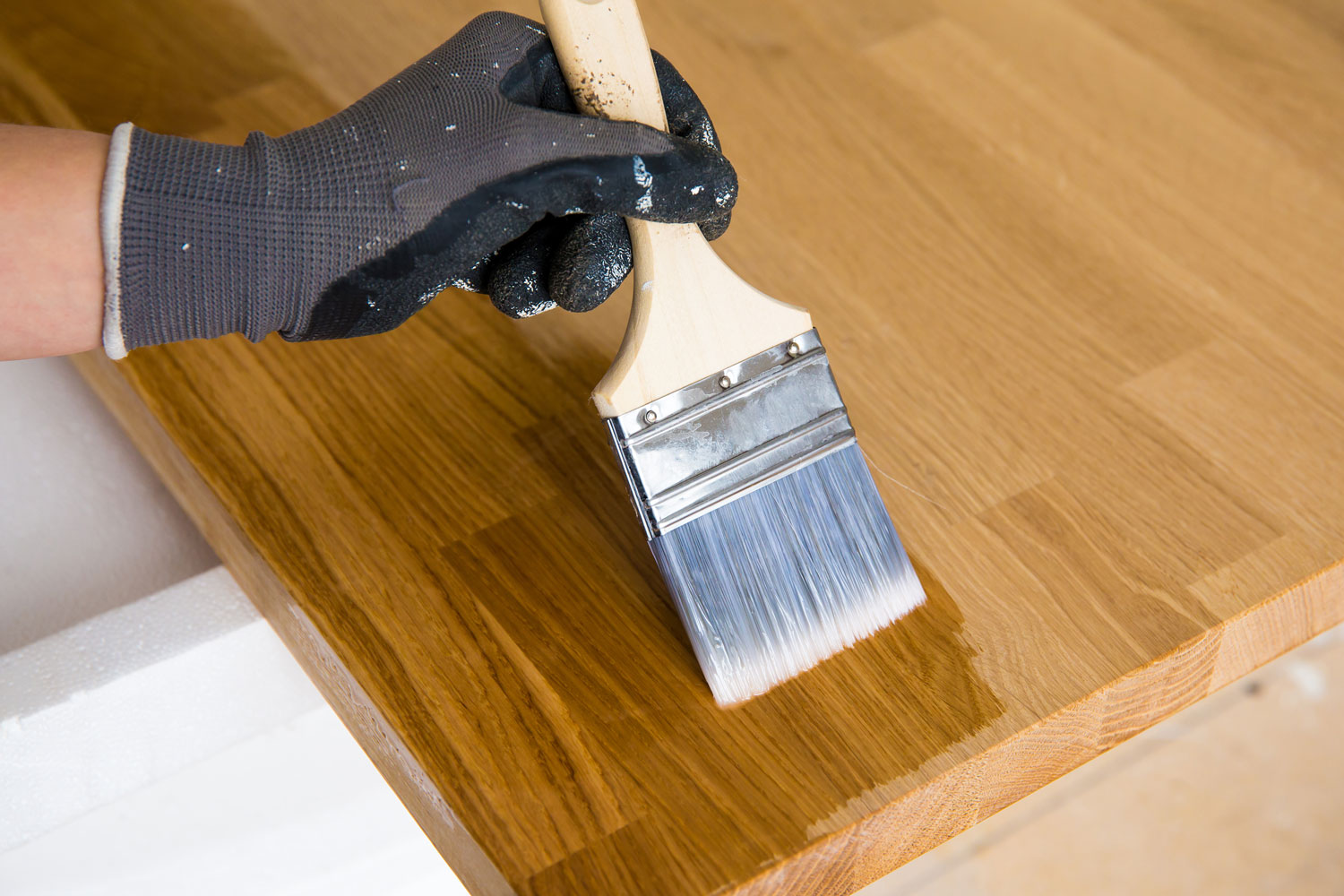
We may include affiliate links and curated AI content to highlight top design styles.
So, if your countertop is unfinished, the finish you choose will change the color of the wood. Therefore, it will saturate the wood, making it look more stunning.
If protection against cuts and scratches is the priority, film-forming finishes are your friends. They can also keep the appearance of the butcher block countertop.
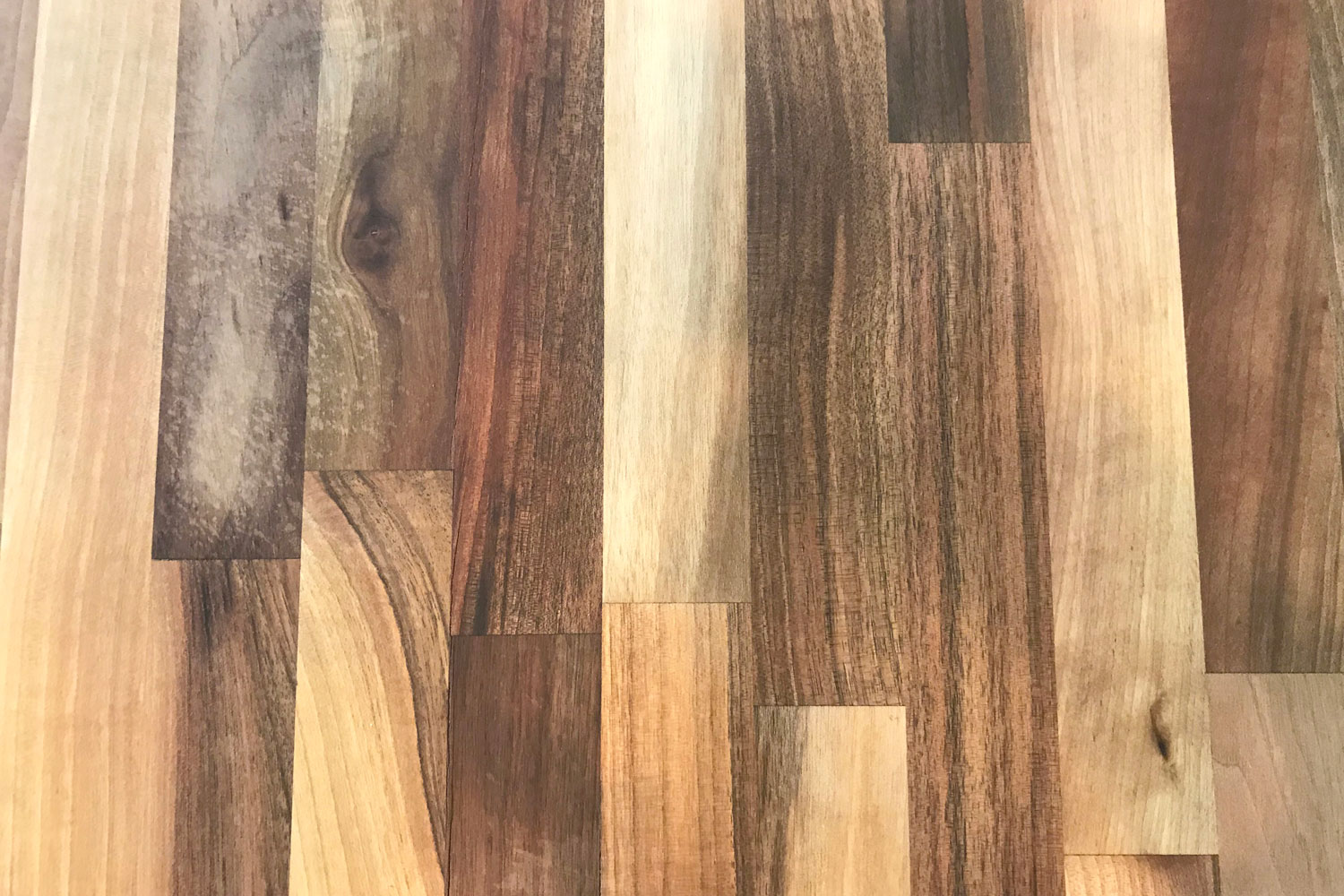
Otherwise, your might prefer functionality over protection and visual appeal. So, if you plan on using the countertop to prepare foods, you'll want something that's food-grade quality. Tung oil and mineral oil are two options you can consider.
In any case, you probably want the details of each option before you make a decision. Let's go over the best finishes for butcher block countertops and their functionalities.
Film-Forming Finishes
A film-forming finish is a vague phrase that doesn't give you a direct idea of your choices. What exactly do professionals mean by it? A film-forming finish is a coating that creates a film on the wood surface's top.
It's a finish that doesn't penetrate the wood. They're more like a cover for it. Since it only forms on the surface of the wood, it can be a disadvantage. Once it begins to crack, the wood underneath won't have protection.
If water happens to slip into the crack, it can damage the wood substantially. It can do worse damage because the film essential suffocates the wood. The water wouldn't have anywhere to escape.
Therefore, it stays inside and makes the wood rot. Of course, you can prevent this by applying multiple coats of the finish. It should work well as long as you're not planning to cut on the butcher block countertop.
Let's go over the film-forming finishes you can consider.
Water-Based and Oil-Based Polyurethane
Polyurethane is a finish that anyone who has worked on wood should know. There are two variations of it, water-based and oil-based. You'll typically see this finish on wood floors. However, it works well with countertops too!
Click here to see this oil-based polyurethane on Amazon.
One concern that comes to mind for this is safety. As you might already know, many consider polyurethane toxic because of the VOC emissions and the presence of isocyanates. However, polyurethane is dangerous only when it's wet.
Once it cures, it should be food-safe. In any case, the formula you choose makes a difference in the outcome. If you decide to go with water-based polyurethane, you mostly keep the natural color of the butcher block countertop.
Click here to see this water-based polyurethane on Amazon.
Oil-based polyurethane will change the color. It has an amber tint that it applies to the wood. In addition, oil-based formulas are also thicker than water-based. So, it will require fewer coats.
More specifically, you'll need around two to three coats of oil-based polyurethane. Water-based polyurethane will require three to four coats to provide the same coverage.
Here's a YouTube video showcasing the differences between the two:
Oils and Wax
Now we move on to the functionality portion of things. In other words, you want to use your butcher block countertop for various actions. Whether it's cutting, spills, or scratches, you need a finish that can provide it all.
Fortunately, oils and wax exist for this purpose. Did you spill liquids on the countertop? No worries, it won't penetrate the wood because the oil penetrates deep to protect it!
Are you cutting vegetables or making pizza on there? The wax has you covered! You won't have to worry about juices and debris getting into hard-to-reach crevices.
Let's go over the oil options.
Food-Grade Mineral Oil
The problem with wood in a kitchen is moisture. You're going to be washing dishes, making spills, and much more. And, if a butcher block countertop doesn't have protection against it, it can quickly deteriorate.
That's where mineral oil comes in. It effectively saturates the wood. So, when you spill liquids, they'll stay out.
Click here to see this mineral oil on Amazon.
People recommend using mineral oil over others because it lasts a long while. The other varieties tend to become rancid over time. You can apply mineral oil to the countertop alone.
Otherwise, you can also mix it with wax for more protection. People usually pair mineral oil with beeswax. However, combining the two yourself can prove to be a tricky task.
So, if you want to avoid going through the process, you also purchase a blend.
Click here to see this mineral oil and beeswax blend on Amazon.
Tung Oil
Those who know more about mineral oil might not like the source. So, as an alternative, you can also consider using tung oil. Unlike mineral oil, it comes from the seed of a tung tree.
Like mineral oil, it doesn't go rancid like other types of oil finishes. In addition, it doesn't give wood too much shine. Homeowner's that love a matte look would most likely favor tung oil over mineral oil.
If you already love the appearance of your butcher block countertop, tung oil also doesn't darken or yellow the surface. Lastly, it's an FDA-approved coating.
More specifically, it's approved to be in repeated food-contact use and applied to any suitable substrate as a continuous film or enamel. Regardless, you want to make sure the surface cures entirely before you or anyone else uses it.
You can pair tung oil with beeswax for additional protection of your countertop. Otherwise, it does well enough by itself.
What Does Food-Safe Mean?
One term you see regularly is food-safe when looking for a finish for your countertop. The meaning behind it seems direct, but there are more details you should know.
Yes, food-safe implies that the finish is safe to be in contact with food. However, how it comes into contact with food is what matters. Some finishes will be food-safe for contact.
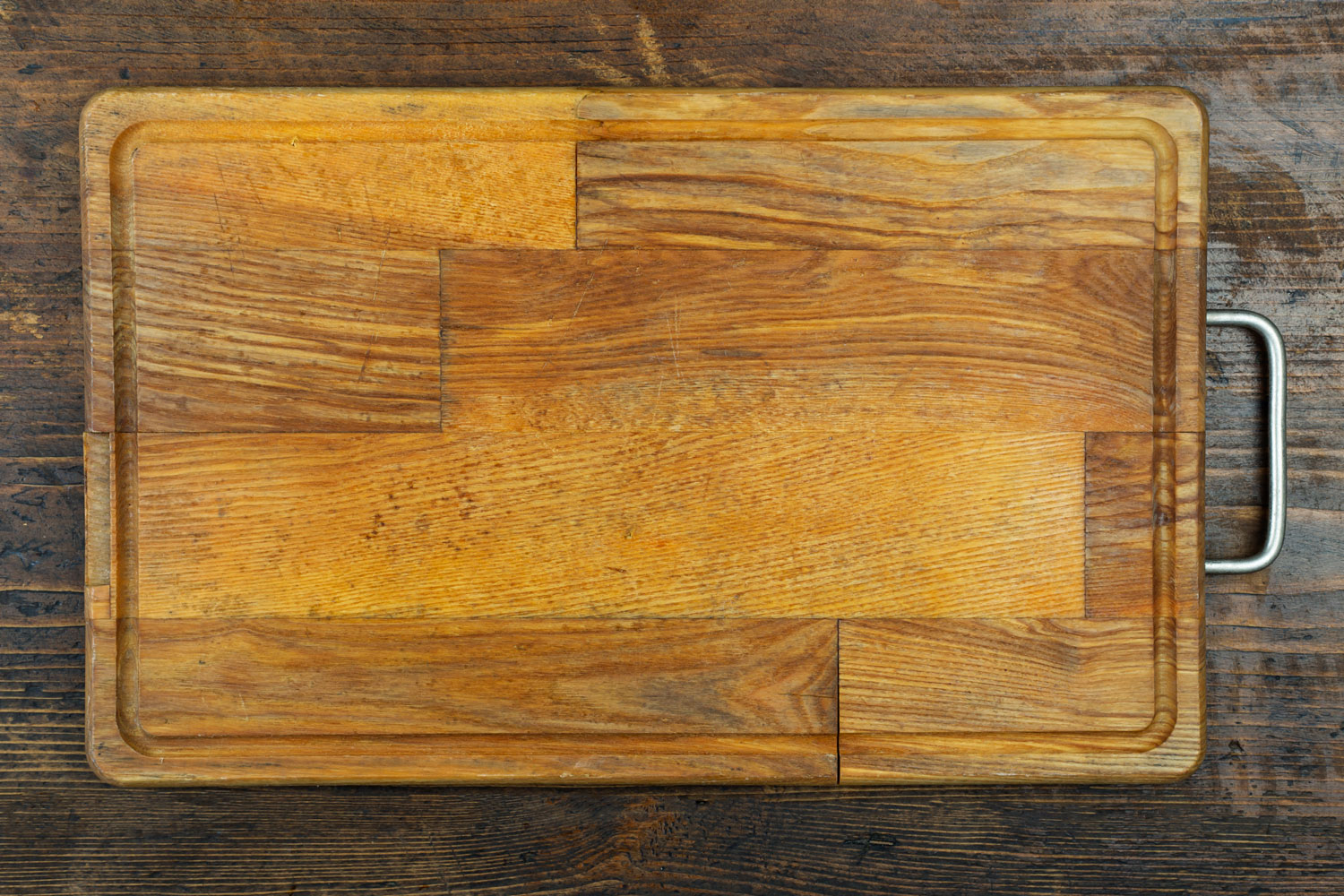
Food-safe for contact indicates that the finish is safe for activities like rolling out dough and other prep work. You should avoid cutting on these finishes as you will be chopping out bits of them. Therefore, tiny bits of it can potentially get into your food.
The film-forming finishes are safe for contact but not for cutting. Some people find that acceptable. However, not everyone would like to ingest resin with their food.
Food-Safe for Chopping
Food-safe for chopping is a different case. It gives you leeway to use your countertop as a chopping board. When a finish is food-safe for chopping, it implies the ingredients in the finish are FDA-approved and edible.
Mineral oil, tung oil, and beeswax fall into this category. Of course, that doesn't mean it's safe to consume entirely. That's especially when it's still curing. Always allow the finish to cure before you use the surface for cutting.
What Is The Most Durable Finish for Butcher Block Countertops?
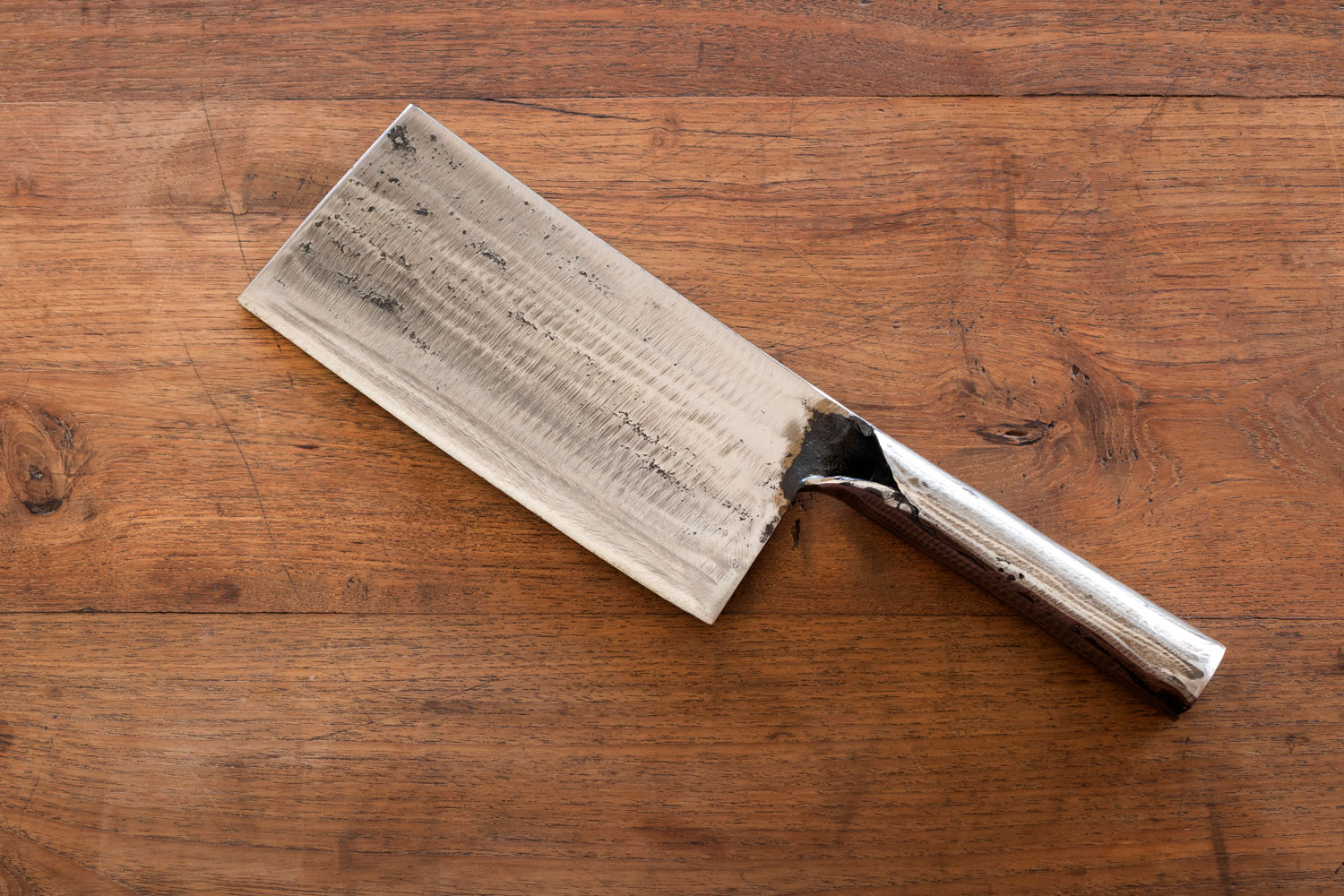
Durability is a factor that we always have to take into account. We want things that can take a beating. However, when looking at finishes, it typically depends on the usage.
Polyurethane is a protective coating that forms on the surface. While it might not be good for cutting, it does well if the countertop is a decorative piece. Additionally, it's not going to require frequent recoating.
Oil and waxes are the better choices when using the butcher block for its functionality. It protects against the sharpness of a knife. And it's more water-resistant than a polyurethane coating.
However, oil finishes require more maintenance. You can expect to recoat the surface every six months. Of course, the more you use the countertop, the more re-applications of wax and oil it will need.
In Closing
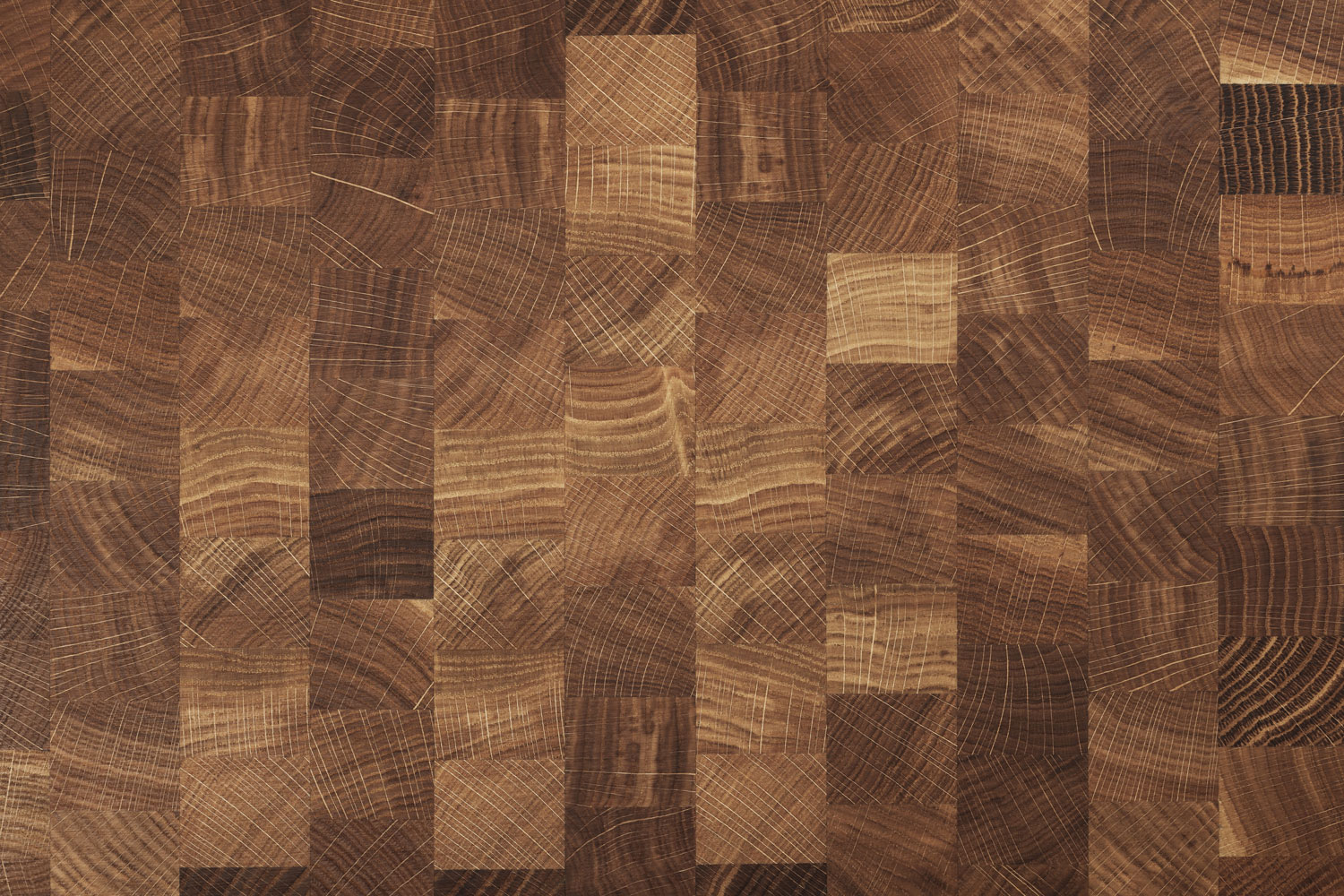
All in all, you can boil it down to two options. Do you want to use the butcher block countertop as a cutting surface? Going with a wax and oil finish is the way to go. If it's decorative, all you need is polyurethane.
Before you go, do you have other concerns? Are you trying to find the best finish for hardwood floors? To learn more, check out:
What's The Best And Most Durable Finish For Hardwood Floors?
Are you considering changing your backsplash? You might want some decorating tips! For more information, check out:






![Beautiful Kitchen in New Luxury Home with Refrigerator, Oven, Hardwood Floors, Kitchen Island, and Pendant Lights, Is Granite Cheaper Than Quartz? [Which Is Better?]](https://homedecorbliss.com/wp-content/uploads/2022/12/Beautiful-Kitchen-in-New-Luxury-Home-with-Refrigerator-Oven-Hardwood-Floors-Kitchen-Island-and-Pendant-Lights-600x400.jpg)

What are the best wood types to use for countertops in terms of hardness(chopping, cutting, baking, spills and spatters, etc.) and lifetime(~30 yr.) durability?